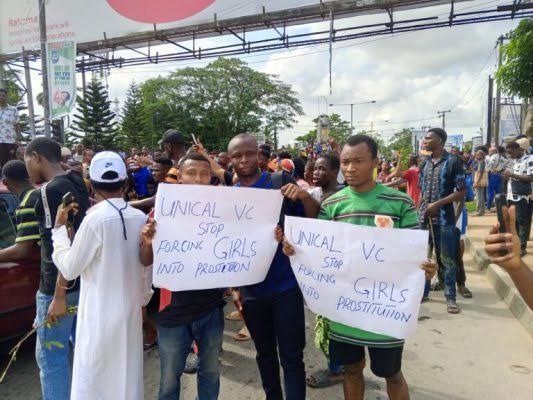Nigeria
UNICAL students demonstrate against increase in tuition fees

The University of Calabar (UNICAL) has seen a more than 100% increase in tuition, prompting students to take to the streets in protest.
The decision to hike tuition fees was taken at a meeting held over the weekend at the University of Calabar (Unical).
The tuition fee increase was agreed at the University Senate’s emergency meeting on Friday, according to Mr. Effiong Eyo, the PRO of the University.
Read Also: UNICAL has implemented 100% increase in tuition fees
According to the statement, the upward review would be implemented starting with the academic sessions of 2022–2023 and 2023–2024.
According to the findings, final year students, returning students, and freshmen in non-science courses may anticipate to spend N114,000, N91,500, and N111,000, respectively, due to the rise in enrollment.
In addition, they must pay N36,500, N21,500, and N21,500 in third party dues, respectively.
Similarly, the scientific courses now cost N155,000, N125,000, and N148,000 for first-year, returning, and final-year students, respectively.
Similarly, they must pay N38,500, N21,500, and N21,500 as arrears to third parties, respectively.
But early on Monday morning, students at the university carried signs with different messages against the increase in tuition and other fees, pleading with the administration to reverse its decision.
Among the messages are “wake up,” “return to the old fees,” “bring back our old fees/charges,” “We can’t afford the news fees,” and “UNICAL SUG.”
The student who blocked traffic on Etta-Agbor and Mary Slessor roads in Calabar Municipality LGA by matching around the school grounds and bringing their protest to the school’s main gate.
According to research, before the increase, the average student’s tuition was N64,050 for first-year students, N52,050 for final-year students, and N49,500 for returning students, depending on the department.
The management gave an explanation, saying that the increase was required to maintain the high academic standards for which the university was renowned as well as the current state of the economy.
